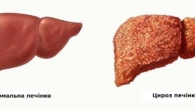
How to Protect the Organ of Longevity: A Life-Saving Eating Habit Named
0
Doctors and scientists are starting to talk more often about the problem of people's resistance to antibiotics, which in the coming decades could become the main cause of death around the world. They pointed out that resistance to antimicrobial agents is largely based on the gut microbiome.
A new study has shown that adding soluble fiber to the daily diet may be the solution. It makes gut bacteria less resistant to drugs, according to an article in ASM Journals.
The intestine is often called the “second brain” and the organ of longevity due to the fact that a person's health and even his life largely depend on its work. Violation of its microbiome leads to various diseases. In addition, it is known that bacteria in the gut can carry genetically encoded strategies for survival when exposed to antibiotics, such as tetracycline and aminoglycosides, necessary to treat many ailments.
According to the study, in healthy adults who were used to daily include food with a content of at least eight to ten grams of soluble fiber in the diet, fewer microbes resistant to antibiotics were found in the intestine. Such fiber is found in barley, oats, beans, lentils, peas, seeds (such as chia), nuts, carrots, berries, broccoli, zucchini, and artichokes. which convert fiber into short-chain fatty acids and change the composition of the gut microbiome.
“The results lead directly to the idea that changing the diet may become a new weapon in the fight against antimicrobial resistance,” say the authors of the study.
p>









Leave a Reply